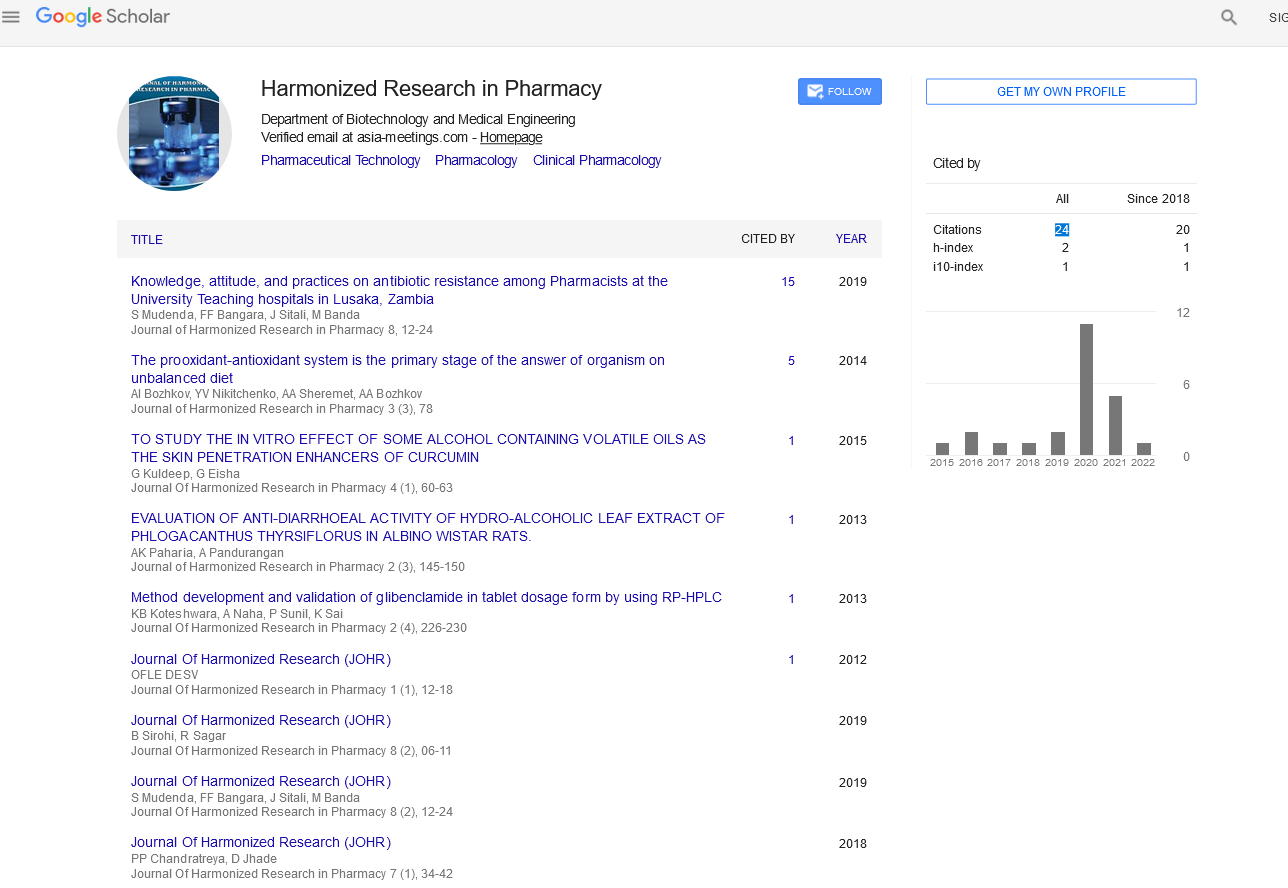BIODEGRADABLE MICROSPHERES FOR SUSTAINED RELEASE DELIVERY OF REPAGLINIDE
Abstract
Author(s): Engla G., Soni L.K. and Dixit V.K.
The objective of the present study is to prepare repaglinide microspheres for the sustained delivery of the drug for better patient care in the management of diabetics. The biodegradable microspheres of repaglinide is prepare using poly(lactic-co-glycolic acid) (PLGA) by emulsion solvent evaporation technique. The microspheres are prepared with different drug-to-carrier ratios and considering other variables (i.e. solvent, surfactant and stirrer speed) as well. The evaluation of microspheres prepared are perform on the basis of various parameters like particle size, percentage yield, drug entrapment efficiency, surface morphology (SEM), drug-polymer interaction (FT-IR study), in vitro drug release kinetics and stability studies. SEM reveals that microspheres are spherical and has nearly smooth surface morphology. The percentage yield and drug entrapment efficiency is quite well for all the formulations. FT-IR spectra show that there is no chemical interaction between the drug and the polymer. The in vitro release study data shows that the repaglinide release from all the formulations are slow and sustained upto 7days. The various kinetic equations indicate that the in vitro drug release is of zero order release with initial burst from repaglinide microspheres. There is no appreciable difference is observed in the stability study observations. Key words: Biodegradable, Microspheres, Poly(lactic-co-glycolic acid) (PLGA), Repaglinide, Surface Electron Microscopy (SEM) and Fourier’s Transformation Infra Red Spectroscopy (FT-IR).

Google Scholar citation report
Citations : 147
Journal of Harmonized Research in Pharmacy received 147 citations as per google scholar report









